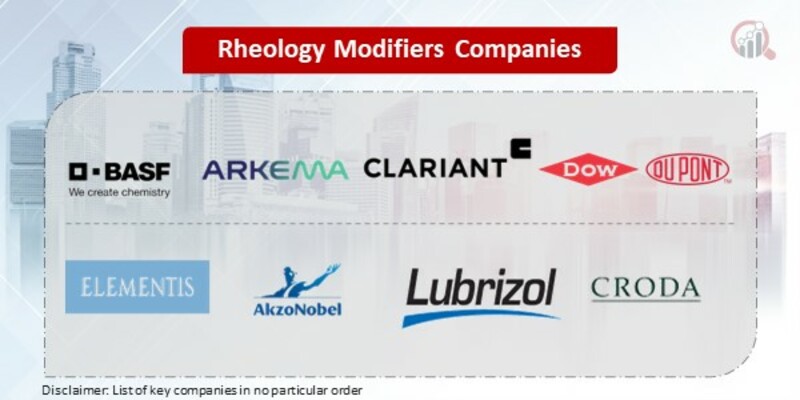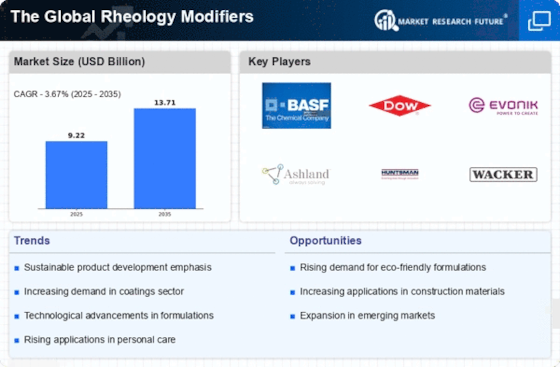Top Industry Leaders in the Rheology Modifiers Market

Rheology Modifiers Market
Rheology modifiers, the unsung heroes of material science, control the flow and deformation of fluids, from the creamy texture of your yogurt to the smooth glide of your paintbrush. Navigating this dynamic landscape requires understanding the key players, their strategies, and the factors influencing market share.
Strategies Shaping the Flow:
-
Innovation & Sustainability: Companies like Dow Chemical and Ashland are leading the charge in developing novel, bio-based, and readily recyclable rheology modifiers. This aligns with the growing demand for eco-friendly solutions in industries like food and cosmetics. -
Specialization & Niche Expertise: Smaller players are carving out their space by focusing on specific applications, like Clariant's focus on high-performance coatings or Evonik's expertise in rheology modifiers for personal care products. -
Vertical Integration & Partnerships: Mergers and acquisitions, like Solvay's acquisition of Chemithon, are fostering consolidation and vertical integration, enabling companies to control supply chains and offer comprehensive solutions. -
Digitalization & Data-Driven Insights: Companies are leveraging AI and machine learning to predict customer needs, optimize production processes, and develop customized rheology modifiers.
Factors Dictating Market Share:
-
Product Type: Organic modifiers dominate the market due to their versatility and environmental benefits, but inorganic options offer cost-effectiveness and specific performance advantages. -
Application: The food and beverage industry remains the largest consumer, followed by paints & coatings, cosmetics & personal care, and oil & gas. Growth in emerging applications like pharmaceuticals and construction is also creating new opportunities. -
Regional Trends: Asia Pacific, driven by China and India, is the fastest-growing region due to rising disposable incomes and urbanization. However, Europe and North America hold significant market shares and are investing in advanced technologies.
Key Players:
- BASF SE (Germany)
- Arkema S.A.(France)
- Clariant (Switzerland)
- The Dow Chemical Company (U.S.)
- Elementis plc (U.K.)
- Akzo Nobel N.V. (the Netherlands)
- The Lubrizol Corporation (U.S.)
- Croda International Plc (U.K.)
- Ashland (U.S)
- Air Products and Chemicals, Inc (U.S.)
Recent Developments :
-
September 2023: A team of researchers develops a 3D-printed rheometer, allowing for real-time analysis of rheology modifiers in various environments. -
October 2023: A study published in Nature Materials demonstrates the potential of using nanocellulose as a sustainable and highly efficient rheology modifier. -
November 2023: The European Commission announces stricter regulations on the use of certain inorganic rheology modifiers in food products, prompting companies to explore alternative solutions. -
December 2023: A major oil company collaborates with a rheology modifier manufacturer to optimize drilling fluids and improve efficiency in oil & gas exploration.











